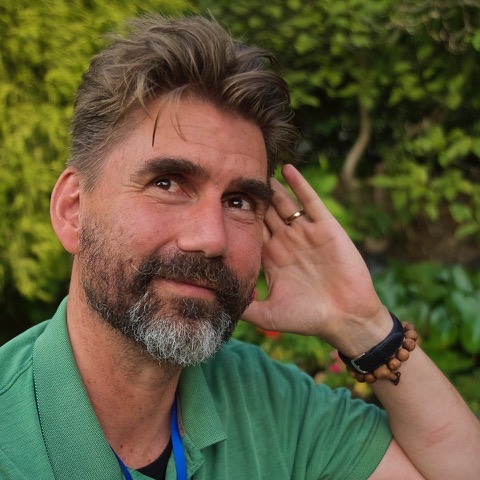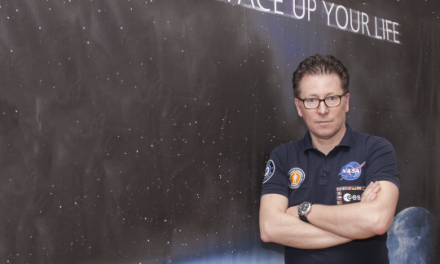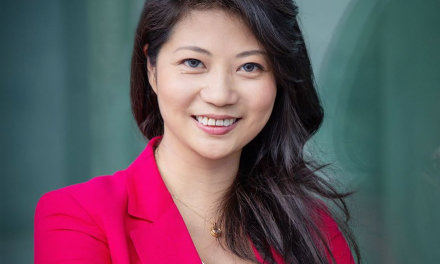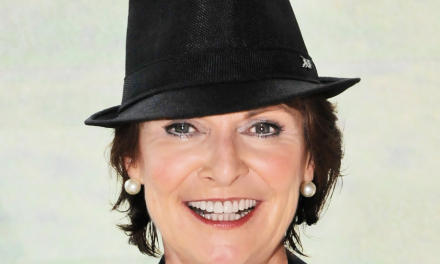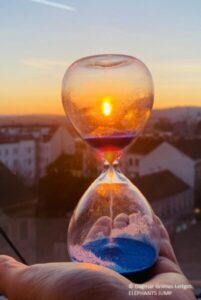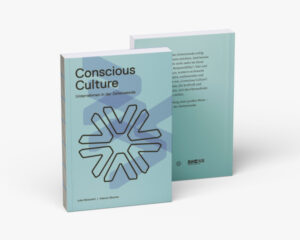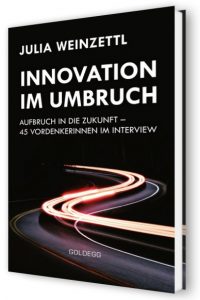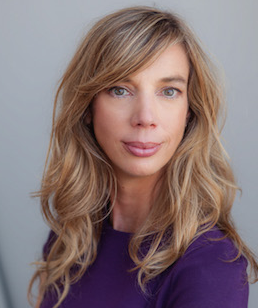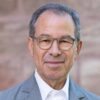Dr. Kai Romhardt
Founder of ‘Network for Mindful Business’,
Author, coach, management consultant, guest lecturer and meditation teacher
Reading Time: 8 minutes
Money is a shape-shifter—how we spend a euro today shapes the economy of tomorrow. Our consumption patterns are an expression of our values and needs. Being aware of this effect and mindfully handling our funds directs our financial energy into more wholesome paths. While this intent may be noble, the execution appears to be catchy. ‘Money is emotionally sticky. Fascination clings to it just as much as envy, jealousy, and anger,’ says Dr. Kai Romhardt, founder of ‘Network for Mindful Business’, ‘In our society, owning things that money can buy is sold as a false promise of happiness.’. The term ‘warm money’ refers to financial energy charged with values reflected in the mindful approach to finance and investments. The new economy that emerges is independent of any price—it is priceless.
By Julia Weinzettl
In the spirit of the taskfarm concept, Dr. Kai Romhardt was invited to the interview by Christoph Bründl, Managing Director Bründl Sports.
You founded the Mindful Economy Network 15 years ago. It addresses people who are searching for meaningful alternatives to the current economic system. One term that emerged from this work is: ‘warm money’. How has this evolved?
Dr. Kai Romhardt: Money contains a robust relational component. How do I relate to an object I buy or a person I’m paying? How do I connect to a company from which I purchase a service? The act of using money seems plain transactional, but there is always a relationship hidden beneath the surface.
We considered the myths of money and what beliefs exist about money. By asking questions like: How much do I really need? Or, how much do I need in relation to someone else? We found out that ‘having enough’ is often about other people. Many times the insight is: I have enough. My real problem is that I have less than my brother or my parents, have less than my fellow students, or get less than a colleague at work I don’t like. That leads to asking: How much is normal? Where does my measure of normalcy come from?
And: What is the difference between what I have and what I want? —the secret between living in abundance or scarcity lies in the acknowledgement of the circumstances. For example, if I have a big house, an expensive car, and a well-paying job, but I still want more, I’m living in a world of scarcity. Or if I compare myself with people wealthier than I am, I live in scarcity. But if I live in a small apartment for rent and work part-time, for example, I have much less than that other person. But I don’t need much, which means my wanting is also small. I may need mental states’ pleasures like contentment, joy, compassion, or benevolence to be truly happy. For one, having is already huge, but wanting is even bigger, and for the other, having is small, but wanting is even smaller. Despite different financial situations, one lives in scarcity and the other in abundance.
In the sense of poor but happy?
Dr. Kai Romhardt: Possibly, but certainly not exclusively; How much I want is the key. We have internalized a promise of happiness that is nurtured by our society. It says: the more we have, the happier we are. This promise of happiness concerns financial wealth and other areas such as power, influence, or notoriety. By practicing mindfulness, we realize that this promise is not valid. This shifts the perception of abundance and scarcity.
Your book emphasizes that dealing with emotions concerning money is a giant demon. What do you mean by that?
Dr. Kai Romhardt: A demon is something that has an inner power, but that I often don’t confront. By looking the other way, it gains even more power. In the field of money, many emotions are hidden that we don’t want to admit. Perhaps we feel envy or jealousy. Maybe we are ashamed because we earn less than others or earn so little. Possibly, we are embarrassed that we have inherited and are wealthier than others. Or we may be ashamed that our money comes from specific jobs that we consider inferior. By looking the other way, we feed a demon within us. Because we know that the moment we touch the subject, we expose ourselves to unpleasant feelings. To fear of losing the money again, fear of losing property, or feeling desire or greed. Feelings that we don’t want to acknowledge because they are not socially accepted. This denial, sometimes buried deep, triggers uncomfortable feelings. Mindfulness practice says: don’t fool yourself—look at it directly!
Pull the demon out of the closet.
Dr. Kai Romhardt: Exactly. In Buddhism, we know Mara, a demon. There is a famous story where Mara visits the Buddha. His aide doesn’t want to let the visitor in, but the Buddha insists. They drink tea and talk to each other in a fearless conversation of understanding. Courageously looking at emotions helps in dealing with our demons. And it shows that money is not simply the tool for buying and paying, but is emotionally charged.
What experiences have you had by dealing with the relational aspect of money?
Dr. Kai Romhardt: When I organized my first retreat, a multi-day seminar on mindfulness of money and finances, we meditated on money. We put cash (a 500-euro bill, several other bills and coins) in the middle. One by one, the participants selected some and put it in front of them. The task was to connect with the money and the emotions it triggered. After a walking meditation, the people who had picked last were asked to take from the money again first. They had to get it from the person, e.g., who had chosen the 500-euro bill and put it in front of themselves. They meditated on this again. In the exchange afterward, it was interesting that almost all participants had gotten a headache from this exercise. Headaches, tension, and emotions had risen, partly not understood. And fascinatingly, after this exercise, nobody mentioned money for the rest of the retreat (it went for two more days).
The demon had risen once, shaken everyone up, caused headaches and unpleasant feelings, and then disappeared again. After that, there was a collective unconscious decision not to touch the subject again for the moment.
Today, our approach is more cautiously.
How do you embark on the topic today?
Dr. Kai Romhardt: For example, we held a retreat on the topic of ‘warm money’. In a small circle around candles, we created an intimate atmosphere, like a gathering around a campfire. An intense desire for ‘warm money’ connected to a lot of pain emerged in the sharing. E.g., someone was supporting their children and realized that the process of giving was always linked to expectation. The act of providing for his children’s education was not warm, joyful giving, but in fact an expectant, controlling instrument associated with power. Or a person on the receiving side shared that she could not be grateful for the financial support of the parents. Although the support was freely given, the gift was associated with pressure to produce particularly good grades in a short time. This tension caused stress and illness. Looking at the subject of money brings to light many stories of the heart.
How is it possible that a different way of valuing funds and transforming them into ‘warm money’ is taking hold?
Dr. Kai Romhardt: The mindful handling of money and finances is a collective learning process that may take place everywhere. In politics, in companies, in social welfare offices, in everyday life, in families, in an encounter with a homeless person. It is important to recognize the often unconscious dimension. To see how many times our thoughts roam around money during the day. To acknowledge and understand the small irritations. Buddhism says: face your problems fearlessly. Try to find out why you are afraid of poverty, for example, even though you live in prosperity. Only by a profound understanding of this fear you no longer can be dominated, be deprived of your freedom, and prevented from doing truly meaningful things. Many people are trapped in jobs that they don’t find meaningful. They don’t dare to change because they are afraid of falling into a financial bottomless pit. They cut off their life energy because they believe they cannot justify this to their families and their environment.

As a Buddhist, you ask for Dana for your services. This means that you let the recipients of your service decide how much to give you. This way of payment is also known as “karma price” or “pay-as-you-wish.” How did you start this journey, especially as you are also providing for your family?
Dr. Kai Romhardt: My wife and I started by offering retreats, but didn’t name a price. At the end of the event, we explained to the participants that we needed financial energy for our livelihood and asked for Dana. Many attendants were initially overwhelmed. The concept was so new that they didn’t know how to act or what to give. We saw the offer of choosing a sum as an exercise for the givers. Namely, to decide whether to give in to stinginess, for example, then the retreat was nice and cheap or almost free. Or to decide to give space to generosity. To question whether it is genuine generosity or the need to impress with giving a lot, although the Dana was given anonymously in envelopes.
What were your experiences?
Dr. Kai Romhardt: Quite mixed, of course we learned a lot. We had 3-day events where we realized at the end that we couldn’t even pay our rent for a week. And we had extremely generous experiences that were overwhelming. It is not uncommon for the difference between those who give the least and those who contribute the most to be a factor of 30 to 50. These large differences contribute to the diverse composition of the groups. The principle of a fixed price always excludes someone. On the one hand, a price tag denies the possibility of showing generosity, and on the other hand, it prohibits people’s participation with less financial resources.
How do people go about ‘calculating’ Dana?
Dr. Kai Romhardt (smiles): Very individually. One person immediately starts to categorize: ‘Do I pay him like my psychotherapist or a management consultant? Or is he more in the category of an employee or a domestic helper?’ Some take their cue from others to create a common solution. Third parties divide by the number of participants and then come up with an amount they consider reasonable.
You’re often hired by businesses. How do you ask companies for Dana?
Dr. Kai Romhardt: In the context of companies and organizations, the irritation was greatest. Most of them could not deal with the lack of a fixed daily rate at all. There were structural reasons for this, such as budgetary constraints or decision-making uncertainty. That’s why I refrained from free pricing for companies. I give a ‘from/to’ spectrum and invite the counterpart to position themselves. Or I offer hybrid payment options. If there are upfront costs due to room rental or travel, I calculate an amount to cover expenses and then offer the option to give Dana.
What does the future of money look like?
Dr. Kai Romhardt: The peculiarity of money is that it is a universal shape-shifter. It can be used to buy things or to hire people to do tasks. It can also be transformed into power and influence. The important thing is to collectively realize that every euro is also a decision about where to direct that energy. This decision is independent of income. You can decide as an individual or as a group, as an entrepreneur or politician, how ‘cold money’ is transformed into ‘warm money’. Each of these decisions strengthens the mindful economy and brings healing seeds into the world.
Network for Mindful Business
www.romhardt.com
We are the Economy
 About:
About:
Dr. Kai Romhardt is the founder of the ‘Network for Mindful Business,’ and a Buddhist Dharma teacher in the lineage of Thich Nhat Hanh. He lived for two years in Plum Village, where he became a member of the Order of Interbeing. Today he works as a coach, business consultant, guest lecturer and meditation teacher. He studied “Management and Organization” at the University of St. Gallen and received his PhD in Knowledge Management from the Chair of Management and Organization at the University of Geneva (Prof. Dr. Gilbert Probst). He is an award-winning author of 7 books, including “Slow Down Your Life” and “We are the Economy“.

